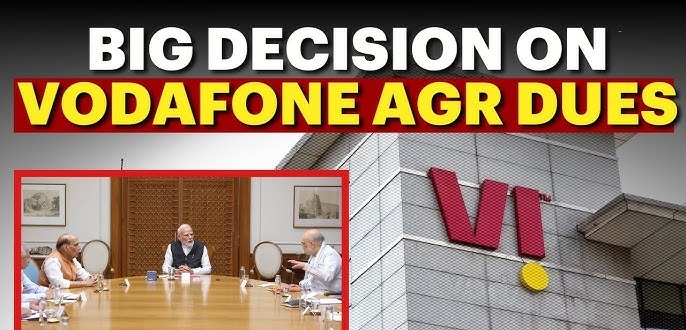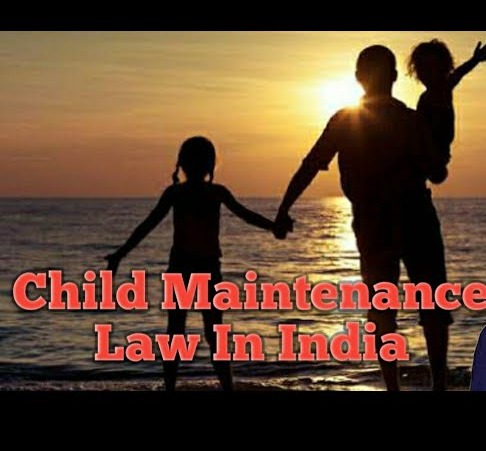S.R. Misra, J.@mdashThis is another series of cases where the litigant has come to this Court on account of arbitrary exercise of discretion conferred on an Authority namely, the Deputy Director of Consolidation, constituted under the U.P. Consolidation of Holdings Act (hereinafter referred to as the Act'') u/s 48 of the Act, where he can go into the questions of fact as well.
2. Briefly stated, the facts of the present case are that Petitioner filed an objection u/s 9(2) of the Act before the Asstt. Consolidation Officer, Jalaun. The said objection was decided in favour of the Petitioner. On appeal, the Settlement Officer (Consolidation) remanded the case back to the Consolidation Officer against which two revisions were filed-one by the Petitioner and the other by the Respondent allottees, the case was sent back to the Consolidation Officer. The Consolidation Officer, however, decided the matter in favour of the allottees and rejected the claim of the Petitioner by order dated 28-4-1980. Aggrieved, the Petitioner preferred an appeal before the Settlement Officer (Consolidation). Oral at Jalaun being appeal No. 23/434 of 1979-80 u/s 11(1) of the Act. During the pendency of the appeal, the Respondent allottees filed a transfer application before the Consolidation Commissioner. The Additional Consolidation Commissioner, Lucknow allowed the transfer application and the appeal, aforesaid, was transferred to Asstt. Settlement Officer (Consolidation), Kanpur Dehat. Appeal of the Petitioner was dismissed by the Asstt. Settlement Officer (Consolidation), Kanpur Dehat and aggrieved, the Petitioner preferred a revision u/s 48 of the Act before the Deputy Director of Consolidation Jalaun at Oral, as the Petitioner was under the impression that the subject matter was situate within the local jurisdiction of Dy. Director of Consolidation, Jalaun, the revision was maintainable there. After about 2 years of filing of the revision, the Respondent-allottees raised question of jurisdiction by moving application on the ground that Deputy Director of Consolidation, Jalaun has no jurisdiction to hear the revision which has been preferred against the order of the Asstt. Settlement Officer (Consolidations) Kanpur Dehat. The said application was rejected by the Deputy Director of Consolidation. Aggrieved by the order dated 20-1-1987 the Respondent allottees filed a Civil Misc. Writ Petition No. 3630 of 1987 before this Court, which was allowed and this Court held that the jurisdiction lies with the Dy. Director of Consolidation, Kanpur Dehat. On 19-8-1988, the Petitioner applied for copy of the order of this Court and on receipt of the same, he filed revision before the Dy. Director of Consolidation, Kanpur Dehat on 27-9-1988 along with an application u/s 5 of the Limitation Act. After the judgment of this Court dated 19-8-1988, the Petitioner also moved an application before the Dy. Director of Consolidation Jalaun for passing appropriate order in pursuance of the order passed by this Court in the aforesaid writ petition.
3. Sri. R.H. Zaidi, learned Counsel for the Petitioner vehemently urged that there was no delay, negligence or laches on the part of the Petitioner in filing the revision before Deputy Director of Consolidation Kanpur Dehat and the delay, if any, was occurred on account of wrong, but bonafide, legal advice and the correct position could be known only after the decision of this Court. In the application u/s 5 of the Limitation Act, the Petitioner fully explained the circumstances for delay but the Deputy Director of Consolidation without considering the same, dismissed the revision refusing to allow condonation of delay. Sri. Zaidi specifically pointed out that the affidavit filed in support of the aforementioned application u/s 5 of the Limitation Act was uncontroverted as no counter affidavit was filed denying the circumstances explained by the Petitioner. In these circumstances, the Deputy Director of Consolidation should not have rejected the application and the same deserved to be allowed. Sri. Zaidi further contended that the Petitioner was bonafidely pursuing his remedy before the Deputy Director of Consolidation, Jalaun under the advice of his Counsel. Even the Deputy Director of Consolidation, Jalaun was also of the view that the revision was maintainable before him and it was only after the writ petition of the allottees-Respondents was allowed by this Court, that the Petitioner could know the true legal position, in sum and substance, the contention of the learned Counsel for the Petitioner is that there was no delay at all on the part of the Petitioner and the delay caused was occasioned on account of bonafide legal advice which dispute was ultimately settled by this Court.
4. Sri. T.N. Porwar, learned Counsel for the Respondents strongly opposed the submissions made by Sri. Zaidi and contended that condoning the delay or refusing the same depends upon the facts and circumstances of each and every case and is within the revisional jurisdiction. This Court, in exercise of power under Article 226 of the Constitution, is not entitled to interfere with such discretion.
5. Having heard learned Counsel for the parties and going through the record of the case, I am of the view that the Deputy Director of Consolidation is not justified in refusing to condone the delay in the present case. From the facts of the present case, it is clear that the Petitioner filed the revision soon after obtaining the certified copy of the order passed by this Court in the aforementioned writ petition. There was no such delay which could result in refusal to decide the matter on merits. The Deputy Director of Consolidation acted arbitrarily by refusing to condone the delay resulting defeat of the very purpose of administration of justice, as in my opinion, the effect of the order of the Deputy Director of Consolidation is that the matter attains finality between the parties without hearing them on merits. The leaning of the authorities exercising jurisdiction should be always for a decision, inter se, between the parties on merits as held by Hon''ble Supreme Court in
The legislature has conferred the power to condone delay by enacting Section 5 of the Indian Limitation Act of 1963 in order to enable the Courts to do substantial justice to parties by disposing of matters on merits. The expression "sufficient cause" employed by the legislature is adequately elastic to enable the Courts to apply the law in a meaningful manner which subserves the end of justice that being the life purpose for the existence of the institution of Courts. It is common knowledge that this Court has been making a justifiably liberal approach in matters instituted in this Court. But the message does not appear to have percolated down to all the other Courts in the hierarchy,
6. From the aforesaid observations of Hon''ble Supreme Court, it is clear that the Apex Court has consistently taken the view that the very purpose of incorporating Section 5 by the Legislature is to enable the Courts to administer substantial justice by disposing of the matters on merits. Sufficient cause is elastic to enable the Courts to apply law in a meaningful manner which may serve the ends of justice. The attempt should always be justice oriented. Too technical view of the matter should be avoided as far as possible. If two courses are open to the Court, i.e. to take a technical view in refusing to condone the delay and to condone the delay and to decide the matter on merits, the later course should be adopted to meet the ends of justice unless the Court comes to the conclusion that there is mala fide on the part of a party in not approaching the Court in time or the litigation is a frivolous one.
7. Coming to the facts of the present case, it is clear that the filing of the revision by the Petitioner before a wrong forum was based on bonafide legal advice and that advice having been turned to be wrong by a decision of this Court, the Petitioner cannot be blamed for the laches. The advice given to the Petitioner by Counsel cannot be termed, by any stretch of imagination, as malafide or reckless advice.
8. So far as the contention of Sri. Purwar to the effect that the revisional Court having exercised its discretionary power, this Court is not entitled to exercise power under Article 226 of the Constitution, is concerned, I am of the view that the submission is not tenable in law. The powers of this Court under Article 226 of the Constitution are wide and only self-imposed restrictions in its exercise are there. The wide powers conferred on this Court under Article 226 of the Constitution cannot be curtailed when this Court is fully satisfied that the cause of justice is going to be defeated if the arbitrary exercise of discretion, while interpreting Section 5 of the Limitation Act, is allowed to stand. This view is fortified by a decision of Hon''ble Subbarao, J. as he then was in
This article is couched in comprehensive phraseology and it ex-facie confers a wide power on the High Courts to reach injustice wherever It is found. The Constitution designedly used a wide language in describing the nature of the power, the purpose for which and the person or authority against whom it can be exercised it can issue writs in the nature of prerogative writs as understood in England; but the scope of those writs also is widened by the use of the expression "nature" for the said expression does not equate the writs that can be issued in India with those in England, but only draws an analogy from them. That apart, High Courts can also issue directions, orders or writs other than the prerogative writs it enables the High Courts to mould the relief to meet the peculiar and complicated requirements of this country. Any attempt to equate the scope of the power of the High Court under Article 226 of the Constitution with that of the English Courts to issue prerogative writs is to introduce the unnecessary procedural restrictions grown over the years in a comparatively small country like England with a unitary form of Government to a vast country like India functioning under a federal structure. Such a construction defeats the purpose of the article itself. To say this is not to say that the High Courts can function arbitrarily under this Article. Some limitations are implicit in the Article and others may be evolved to direct the Article through defined channels. This interpretation has been accepted by this Court in
9. This Court has also consistently held from time to time right from 1956 that Section 5 of the Limitation Act should be liberally construed so as to advance substantial justice and there is no derth of case laws on the point that If an authority has exercised arbitrary discretion in the matter of condonation of delay, this Court is bound to interfere. True it is that if the delay has been condoned, this Court is always reluctant to interfere even if the cause of condonation was not sufficient, because of the fact that on account of such condonation of delay, the parties get opportunity to contest their case on merits; but, when condonation of delay is not granted despite the fact that there was no negligence or laches on the part of a party but for the bonafide legal advice, this Court cannot refrain itself from interference because that will amount grave injustice to the concerned party be not hearing it on merits.
10. For what has been said above, the writ petition deserves to be allowed.
11. In the result, the writ petition succeeds and is allowed. The impugned order dated 18-7-1990 passed by the Deputy Director of Consolidation, Kanpur Dehat is set aside. The Deputy Director of Consolidation is directed to decide the case afresh in accordance with law and in the light of the observations made above. The parties shall, however, bear their own costs.

